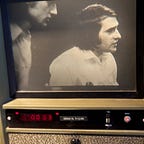My Kind of Billionaire…
It was a life well lived. He made a lot of moolah but he knew you can’t take it with you; hence, Charles “Chuck” Feeney, had one goal in mind after accumulating his billions: give it away.
And not “give it away” with much self-congratulatory hoopla advised by high-powered publicists trying to make it seem that he’s done something noble and special. No, Feeney just wanted to give it away.
He did succeed and on September 14th, 2020, he shut down Atlantic Philanthropies. It took him something like forty years to shower $8 billion dollars on a wide variety of necessary campaigns: from human rights to expanded health care to scientific research (among others).
Feeney and his wife Helga then retired to a modest apartment in San Francisco. He was happy as hell knowing that he wasn’t going to die a rich man.
I first learned about Feeney while penning blogs about the greedy financial set during a 2011/2012 tenure at American Banker. Intrigued, as I was, by a guy who grasped the real spiritual value of money I wrote the following piece:
Calculating Charity: Does PR Diminish the Value?
By Joel Sucher December 30, 2011, American Banker
As non-profit 501 © 3’s around the country make a mad dash for end of the year donations, it gives me some pause for thought about the whole nature of “giving.”
Charity has become big business. Who to give to, when to give, and what to give has become an industry stuffed full of consultants, psychologists and public relations specialists. But in this world of tax deductibility, image burnishing and damage control, does that old saw about giving versus receiving have any contemporary relevance? And, by extension, should “giving” always entail “receiving” some sort of acknowledgment?
Maimonides, the esteemed Jewish philosopher of the middle-ages, thought well and long about the nature of philanthropic giving; establishing a “golden ladder of charity.” Lowest on the rung was giving of the “hand, not the heart.” In other words: a forced giving with some expectation of a return (think acknowledgement). The top of the ladder was reserved for those whose giving is anonymous and selfless, purely aimed at improving the lot of the recipient.
No one can argue with the beneficial nature of philanthropy. Obviously, green is green no matter what the motive of the donor, so, I’ll admit, this is more of a philosophical musing. But I have to say that I did a double-take this fall when reading that the New York Police & Fire Widow’s Benefit Fund would hold a gala, hosted by NBC’s Brian Williams, honoring Goldman Sachs Chairman and CEO, Lloyd C. Blankfein.
Coming as it did, in mid-October, I couldn’t fail to dwell on the significance of the potential positive press for Goldman at a time when Occupy Wall Street’s efforts were in full swing. Now nobody can take Blankfein to task for his firm’s donation of big bucks to a good cause, but I couldn’t shake the vision that kept popping up in my brain; a historical parallel of sorts. There was New York’s iconic Boss Tweed, Tammany Hall’s 19th century political boss, out and about in immigrant neighborhoods — in the dead of winter — handing out much needed pots of coal.
Whether you use charity to foster good will or to buy votes (the former, quite acceptable, the latter, illegal), those karmically/philosophically inclined may want to dwell on the strange case of New Jersey Irish American billionaire, Charles F. Feeney. I guess he’d rank high in the estimation of Maimonides by successfully giving away most of his fortune, anonymously. In fact, so anonymously, that several business magazines continued to estimate his net worth in the billions long after he had donated 600 million to a variety of medical institutions and parked the rest in two philanthropic foundations.
His story only came to light in 1997 after his company — consisting of duty free stores around the world — was sold to Moet, and the press got wind of his charitable pursuits. When asked why he had done all this, his reply: “I simply decided I had enough money…It doesn’t drive my life.” Even a recent gift to his alma mater, Cornell, in the amount of $350 million, was first reported as coming from an unnamed donor. Finally, after Cornell was peppered with questions about who’d give this sort of money the foundation felt compelled to release his name. That done, I guess he’ll fade back into the philanthropic woodwork.
So, is he a better man, then let’s say, Lloyd Blankfein? That, relatively speaking, is a good question.
Joel Sucher is a co-founder of Pacific Street Films (together with Steven Fischler) and has written for a number of platforms including American Banker, In These Times, Huffington Post and Observer. com.
